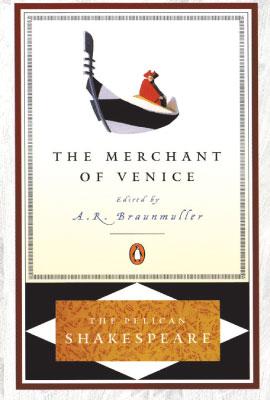
 William Shakespeare’s The Merchant of Venice is set in Venice and Belmont, Italy during the sixteenth century. The play focuses on the lives of the characters named Antonio, Bassanio, Portia and Shylock. The play begins in Venice with a melancholy Antonio telling his friends about the cause for his sadness which he cannot explain. Antonio’s friend Bassanio wants to marry the wealthy heiress Portia and asks Antonio for a loan in order to woo her. Antonio is unable to give Bassanio a loan and he tells him to ask Shylock, the Jewish money lender and name him as a guarantor. Shylock’s contract states that if the loan is not re-paid, he will demand a pound of Antonio’s flesh.
William Shakespeare’s The Merchant of Venice is set in Venice and Belmont, Italy during the sixteenth century. The play focuses on the lives of the characters named Antonio, Bassanio, Portia and Shylock. The play begins in Venice with a melancholy Antonio telling his friends about the cause for his sadness which he cannot explain. Antonio’s friend Bassanio wants to marry the wealthy heiress Portia and asks Antonio for a loan in order to woo her. Antonio is unable to give Bassanio a loan and he tells him to ask Shylock, the Jewish money lender and name him as a guarantor. Shylock’s contract states that if the loan is not re-paid, he will demand a pound of Antonio’s flesh.
Shylock’s daughter Jessica elopes with a Christian named Lorenzo and escapes from the misery of her home. Meanwhile in Belmont, Portia’s suitors try to win her but she is interested only in Bassanio whom she had met previously. Portia tells her maid Nerissa that her father influences her choice of a husband from beyond the grave. Portia’s father has devised a casket test by which a suitable husband for Portia will be selected. Fortunately for Portia, Bassanio passes the casket test and they get married.
But bad news arrives as Antonio’s ships are believed to have been sunk at sea, and Shylock demands his pound of flesh. Portia who is very intelligent disguises herself as a lawyer in order to rescue Antonio, and asks Shylock to be merciful.
“The quality of mercy is not strain'd,
It droppeth as the gentle rain from heaven
Upon the place beneath: it is twice blest;
It blesseth him that gives and him that takes:
‘Tis mightiest in the mightiest: it becomes
The throned monarch better than his crown;
His sceptre shows the force of temporal power,
The attribute to awe and majesty,
Wherein doth sit the dread and fear of kings;
But mercy is above this sceptred sway;
It is enthroned in the hearts of kings,
It is an attribute to God Himself;”
(Act IV, Scene 1)
In The Merchant of Venice, Shakespeare explores the beauty of Christian mercy and the spirit of religion according to the New Testament which is in stark contrast to Shylock’s harsh views which are in accordance with the Old Testament, and thereby dramatises the conflict between Christians and Jews which provides an insight into their religious ideologies.

